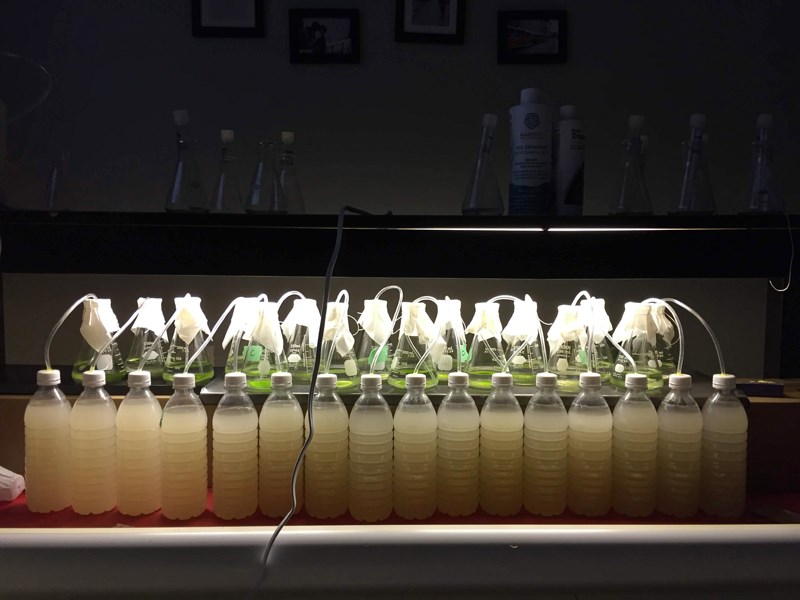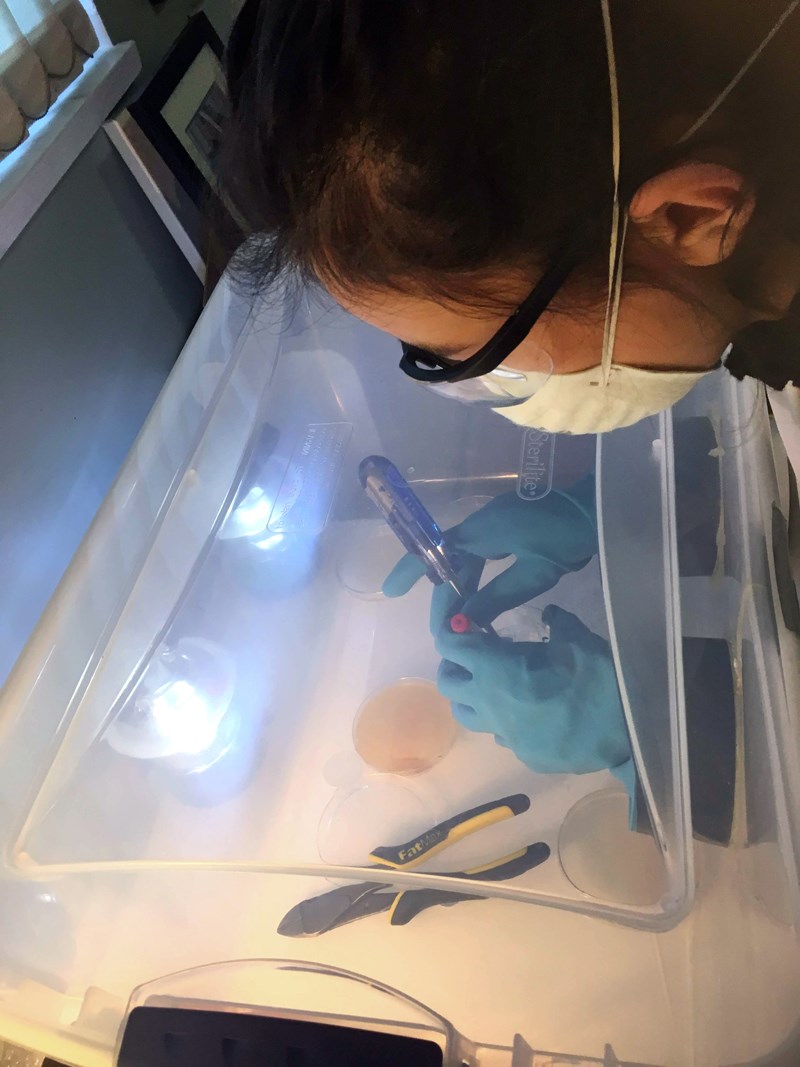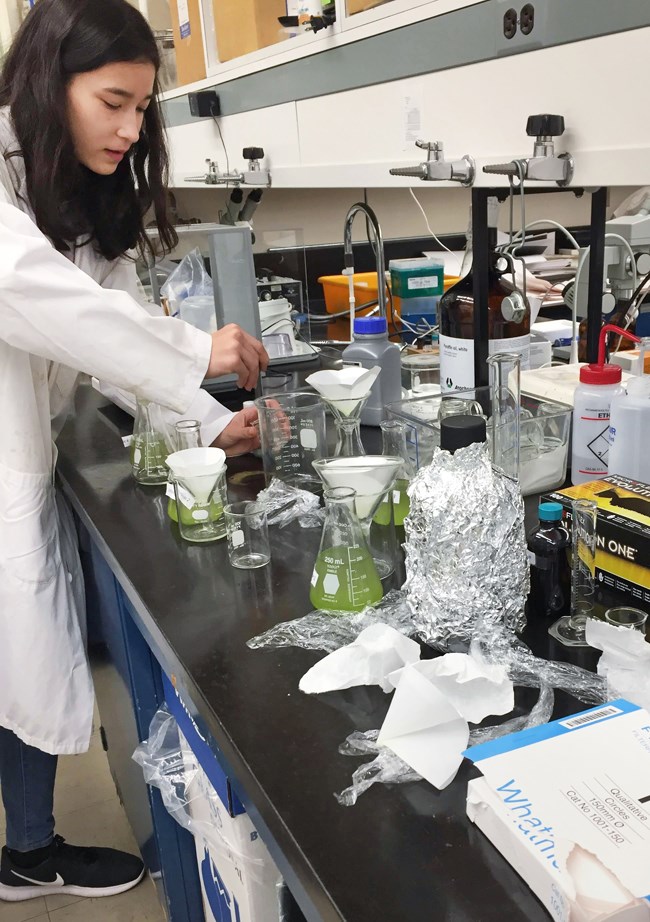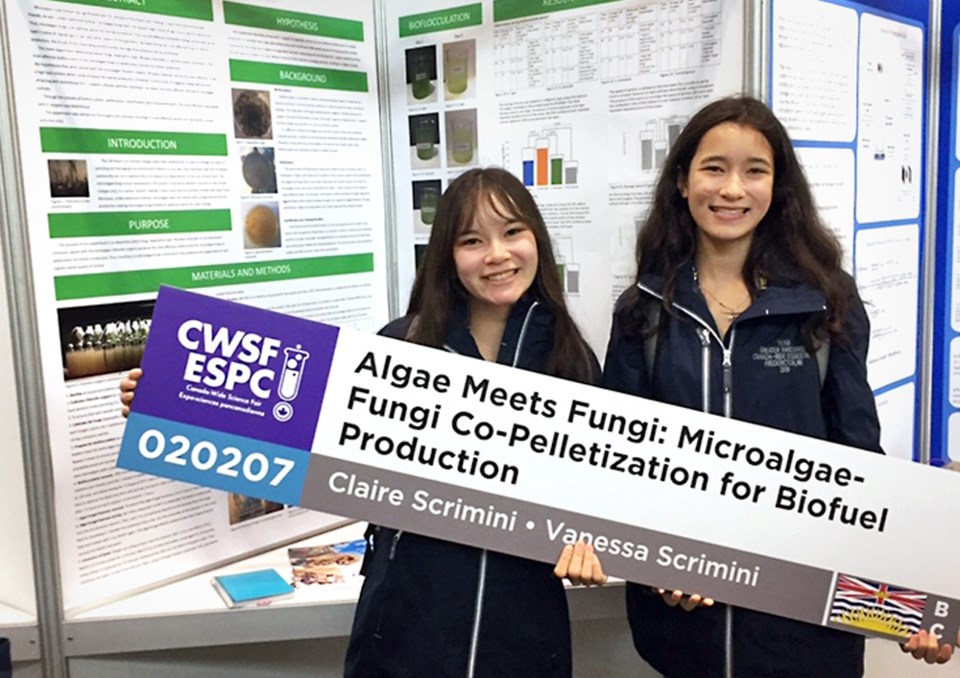Burnaby students made up nearly half of Greater Vancouver's contingent at the Canada-Wide Science Fair in Fredericton, NB last week – and they did not disappoint.
In all, local students earned six medals, one challenge award, two young-researcher awards and thousands of dollars in scholarships.
But the Canada-Wide Science Fair isn’t just about awards, according to Burnaby North Secondary Grade 10 student Vanessa Scrimini, who teamed up with her twin sister, Claire.
“The point isn’t just to go there and win a medal,” she said. “The purpose is also to meet other people from all around Canada and really get to celebrate what everyone’s accomplished.”
Seventeen out of 283 students who competed at the Greater Vancouver Regional Science Fair in April earned a free trip to compete in Fredericton May 11 to May 17 – eight of them were Burnaby public school students.


For Claire and Vanessa Scrimini, it was the second year in a row making it to the national competition.
They began brainstorming their project, Fungi Meets Algae, last summer and took up two spare bedrooms at home growing fungi and algae to use in experiments designed to test which combination would be most effective for making biofuel.
“A microalgae-fungi biofuel has significantly less C02 emissions, and production is classified as carbon-neutral because the carbon dioxide that is absorbed by the algae is equal to the carbon dioxide that is released when the fuel is burned,” states a description of the project.
Like all the entries, the project was evaluated by judges from universities and from the public and private sectors.
The Scriminis’ project earned a gold medal in the intermediate category and the Energy Challenge Award, along with a pair of $4,000 entrance scholarships from the University of Western Ontario.
“We’re really happy about how this project turned out,” Claire said.

Inquiry-based learning
Other intermediate medal winners at the national science fair were Alpha Secondary Grade 9 student Kyle Brent, who won silver for Metallurgy Mayhem and Moscrop Secondary Grade 10 student Wendy Fang, who earned silver for Pollen GPS.
In the senior category, Burnaby North Secondary Grade 11 student Laura Wang won bronze and a Canadian Young Researcher Award for Endotoxin’s Association with Wheeze and Atopy, while fellow North student Charley Cai, Grade 12, earned silver and a Canadian Young Researcher Award for Chagas Disease: Decoding Vector-Based Pathogen Recognition.
What’s going on in Burnaby’s science classrooms to lead to such success on the national stage?
Donna Morgan, who oversees the science portfolio for the school district, said it’s a deliberate shift in approach at schools.
“In years gone by, it might have been mostly honours’ classes participating in science fairs,” she said. “Over the last few years, our secondary science departments have made a deliberate shift to more inquiry-based learning, and science projects are a natural fit for this. That means more of our students are getting exposed to science fairs, and that has two effects: they improve the more they do it, and just being at one can give students a bug and make them keen to strive to develop good projects. I am thrilled with the results.”



